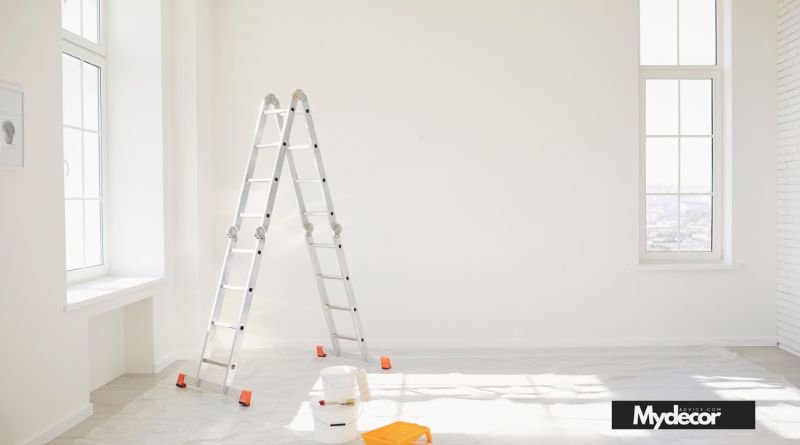Understanding the Cost of Building a House
Building a house is a significant financial investment, and understanding the costs involved is essential for planning and budgeting. The overall cost of constructing a home varies depending on factors such as location, materials, labor, permits, and design choices. Whether you are considering building a small home or a luxurious mansion, it is crucial to estimate expenses accurately to avoid unexpected financial burdens.
Key Factors That Affect House Construction Costs
1. Location and Land Costs
The cost of land is one of the primary expenses when building a house. Prices vary significantly based on location, with urban areas and prime locations typically being more expensive than rural areas. In addition to purchasing land, you may need to consider land preparation costs such as clearing, excavation, and leveling, which can add thousands of dollars to the budget.
2. Size and Design of the House
The size and complexity of a house play a crucial role in determining construction costs. A larger home with multiple floors, intricate designs, and custom features will be more expensive than a simple, single-story house. Custom-built homes generally cost more than prefabricated or modular homes due to additional architectural and engineering work.
3. Materials and Labor
The choice of building materials significantly impacts the overall cost of construction. High-quality materials such as hardwood flooring, granite countertops, and energy-efficient windows are more expensive than standard materials. Additionally, labor costs vary based on location, availability of skilled workers, and the complexity of the project. Labor costs can account for 30% to 50% of the total construction budget.
4. Permits and Regulations
Obtaining the necessary building permits and adhering to local building codes is essential before starting construction. Permit costs vary by location and the complexity of the project. Some areas require additional inspections and compliance with environmental regulations, which can further increase expenses.
5. Utility Connections and Infrastructure
Connecting utilities such as water, electricity, gas, and sewage to the house is another important factor to consider. If the land is in a remote location, utility installation costs can be significantly higher due to the need for additional infrastructure development.
Breakdown of House Construction Costs
The average cost to build a house varies widely based on different factors. Below is a general cost breakdown:

1. Land Purchase and Preparation
- Land cost: $5,000 – $200,000 (varies by location)
- Land clearing and excavation: $1,500 – $10,000
2. Architectural and Engineering Fees
- Architect and design fees: $2,000 – $15,000
- Structural engineering costs: $3,000 – $10,000
3. Foundation and Framing
- Foundation (slab, crawl space, or basement): $8,000 – $50,000
- Framing (wood or steel structure): $20,000 – $50,000
4. Exterior and Interior Finishing
- Roofing: $5,000 – $15,000
- Windows and doors: $3,000 – $15,000
- Flooring, drywall, and painting: $15,000 – $40,000
5. Plumbing, Electrical, and HVAC
- Plumbing: $8,000 – $15,000
- Electrical wiring and fixtures: $10,000 – $30,000
- HVAC system (heating and cooling): $7,000 – $15,000
6. Additional Costs
- Kitchen and bathroom installations: $10,000 – $40,000
- Landscaping: $5,000 – $15,000
- Permits and inspections: $1,500 – $10,000
Total Estimated Cost
On average, the cost to build a house in the U.S. ranges from $150,000 to over $500,000, depending on location, size, and materials used. The national average cost per square foot is around $100 to $200, but luxury homes can exceed $400 per square foot.
Ways to Save on House Construction Costs
1. Choose a Simple Design
Opting for a straightforward floor plan with fewer custom features can significantly reduce construction costs. Avoiding unnecessary architectural details and complex rooflines can help keep the budget under control.
2. Use Cost-Effective Materials
Selecting budget-friendly yet durable materials can lower expenses. For example, using engineered wood instead of solid hardwood or opting for laminate countertops instead of granite can reduce costs without sacrificing quality.
3. Hire a Reliable Contractor
Working with an experienced and reputable contractor can prevent costly mistakes and delays. Comparing multiple bids and negotiating prices can help secure the best deal.
4. Consider Prefabricated or Modular Homes
Prefabricated and modular homes are often more affordable than traditional site-built homes. These homes are manufactured in a controlled environment, reducing labor costs and construction time.
5. Do Some Work Yourself
Taking on some tasks such as painting, landscaping, or minor interior work can save thousands of dollars. However, it is essential to avoid DIY projects that require professional expertise, such as electrical or plumbing work.
Final Thoughts
Building a house is a major investment that requires careful planning and budgeting. The total cost varies depending on factors such as location, materials, labor, and design preferences. By understanding the various cost components and exploring cost-saving strategies, homeowners can build a house that fits their budget without compromising on quality. Whether opting for a simple home or a luxurious estate, thorough research and smart financial decisions are key to a successful construction project.








